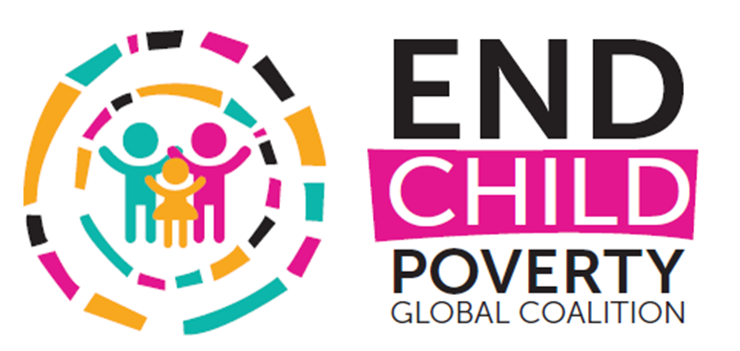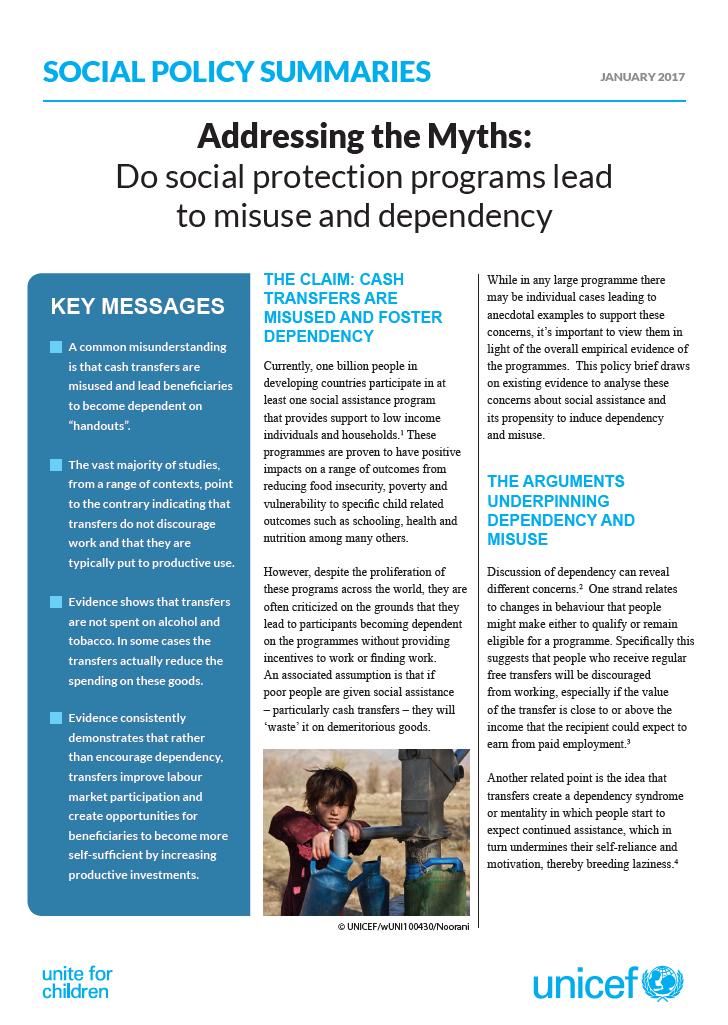Brief
Evidence summary on dependency and misuse of cash transfers
Currently, one billion people in developing countries participate in at least one social assistance program that provides support to low income individuals and households. These programmes are proven to have positive impacts on a range of outcomes from reducing food insecurity, poverty and vulnerability to specific child related outcomes such as schooling, health and nutrition among many others.
However, despite the proliferation of these programs across the world, they are often criticized on the grounds that they lead to participants becoming dependent on the programmes without providing incentives to work or finding work.
An associated assumption is that if poor people are given social assistance - particularly cash transfers - they will ‘waste’ it on demeritorious goods. While in any large programme there may be individual cases leading to anecdotal examples to support these concerns, it’s important to view them in light of the overall empirical evidence of the programmes. This policy brief draws on existing evidence to analyse these concerns about social assistance and its propensity to induce dependency and misuse.


